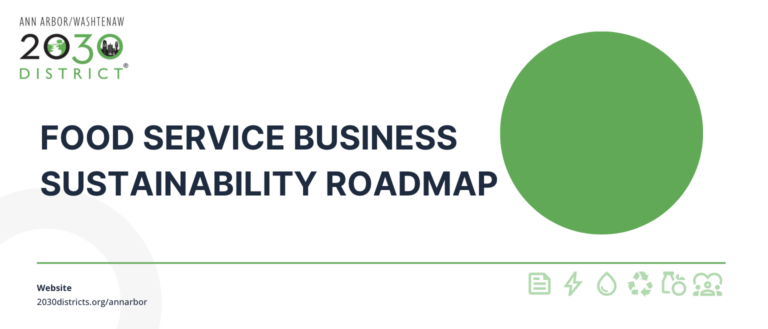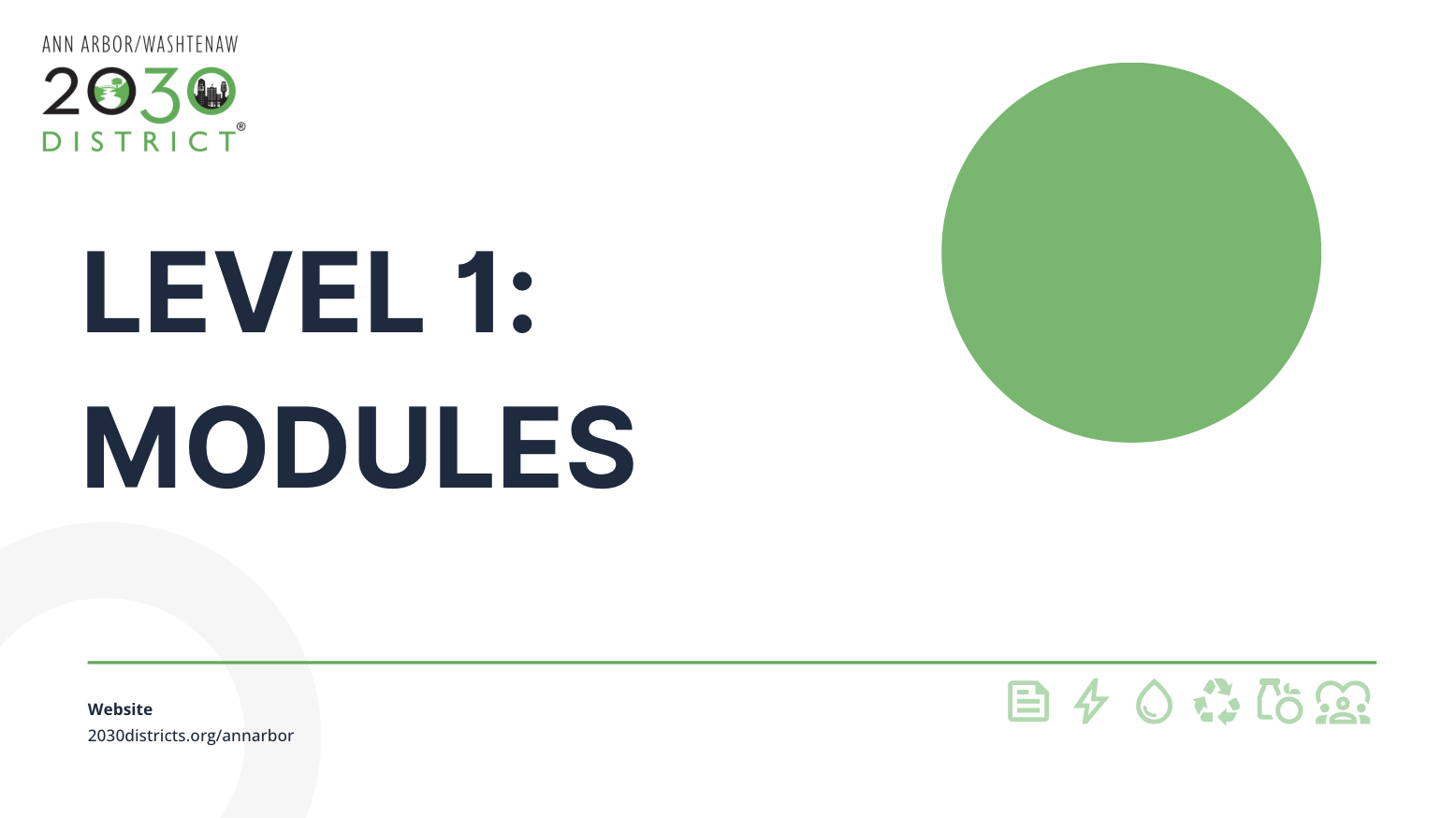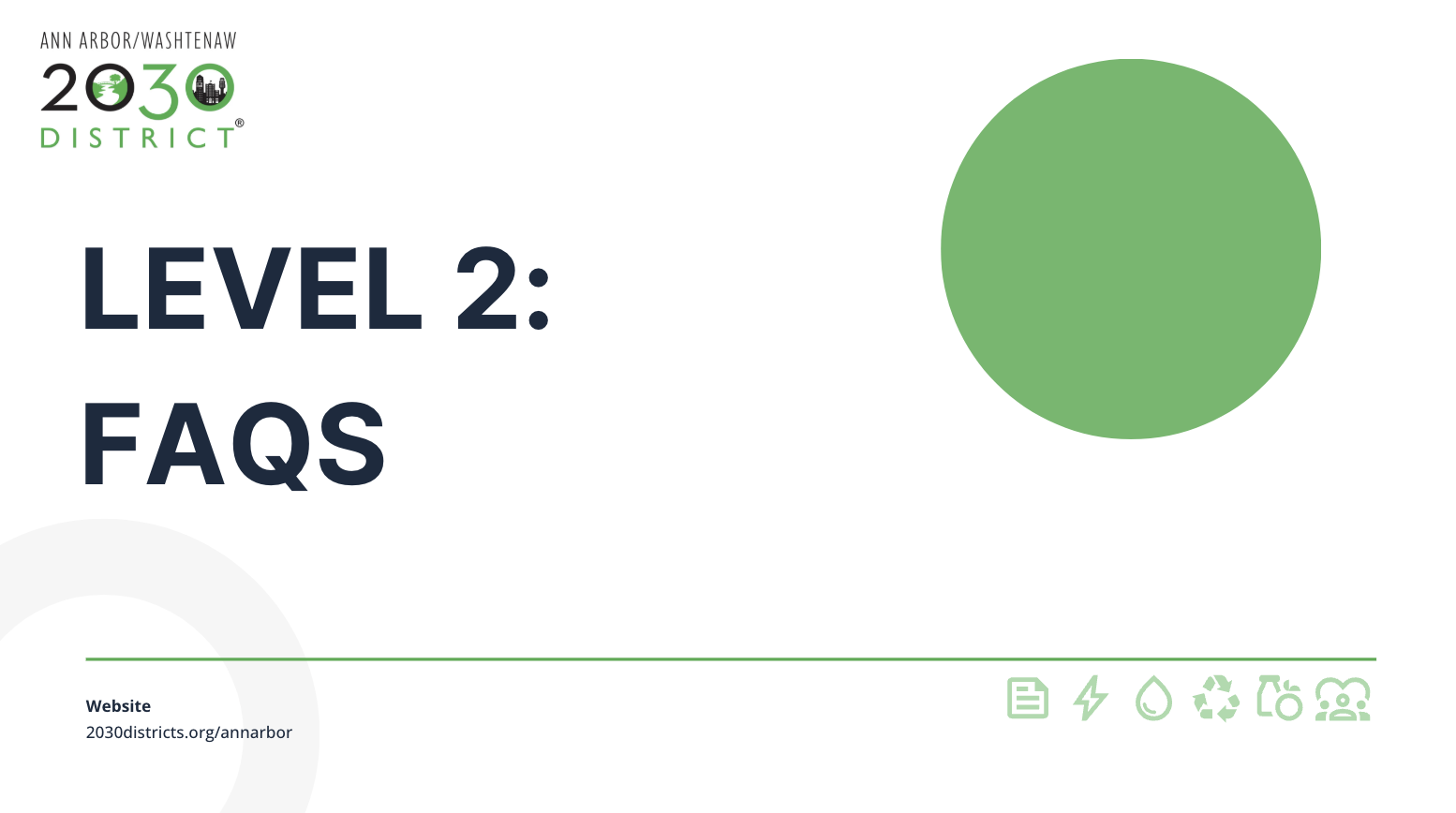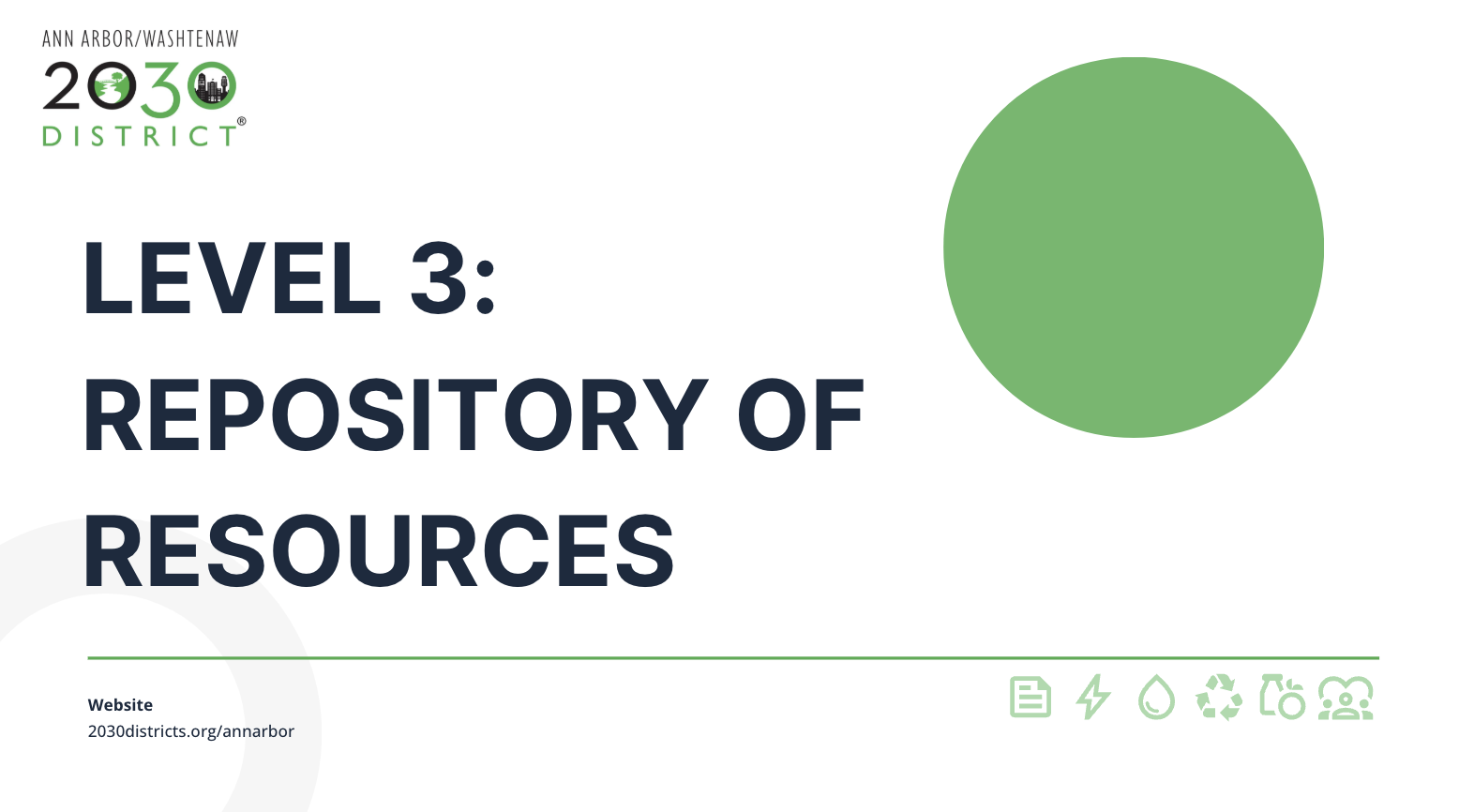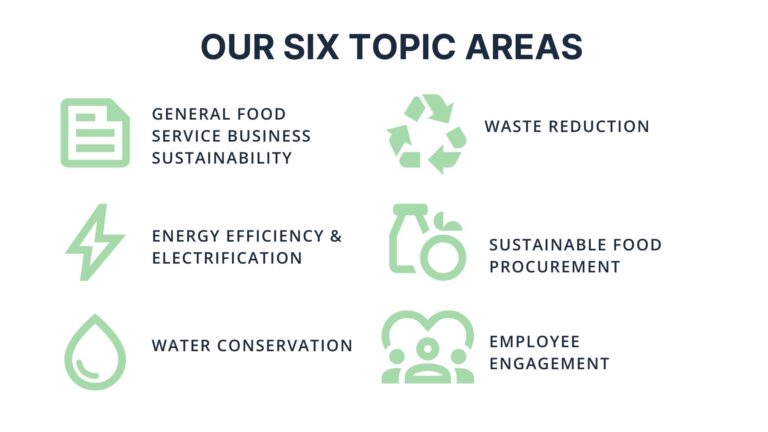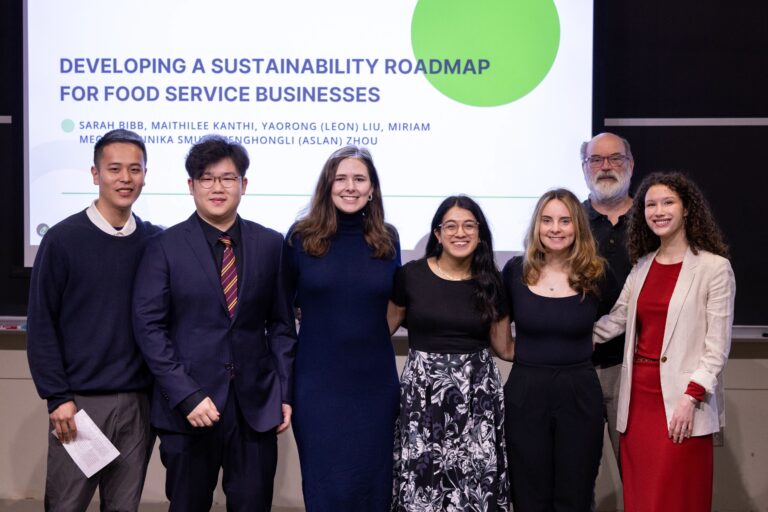Ann Arbor/Washtenaw 2030 District enlisted a University of Michigan School for Environment and Sustainability graduate student team to develop a roadmap to help food service businesses become more sustainable as part of the student’s master’s capstone project. The project builds on the Ann Arbor/Washtenaw 2030 District’s involvement in advancing the A2ZERO Plan.
The team used scholarly articles, web resources from nonprofit organizations, government agencies, and industry experts, as well as surveys and interviews with local food service business owners and managers to understand the opportunities and barriers for sustainability in the industry. The team learned that time, money, access to resources, ownership for the building, and knowledge on the topic of sustainability were key barriers to food service business sustainability.
Through collaboration with Azella Markgraf, Food Sustainability Coordinator at the Ann Arbor Office of Sustainability and Innovation, and interviewees, the team developed this roadmap to address these resource barriers.
The roadmap is divided into three levels to address varying levels of knowledge and where people are in their sustainability journey, and covers six topical areas of food service business sustainability: food service business sustainability overview, energy efficiency and electrification, water conservation, waste management, food procurement, and employee engagement.
The full report about how the project was developed can be found at the University of Michigan’s Deep Blue archive, here.
We invite food service business owners, managers, and employees to use as much or as little of the roadmap as they need to help them become part of a more sustainable local food system.
You can contact us if you have any questions about the roadmap or would like additional help. You are also invited to join the Sustainable Food Business Coalition to be part of a larger movement working towards food business sustainability in Ann Arbor.

